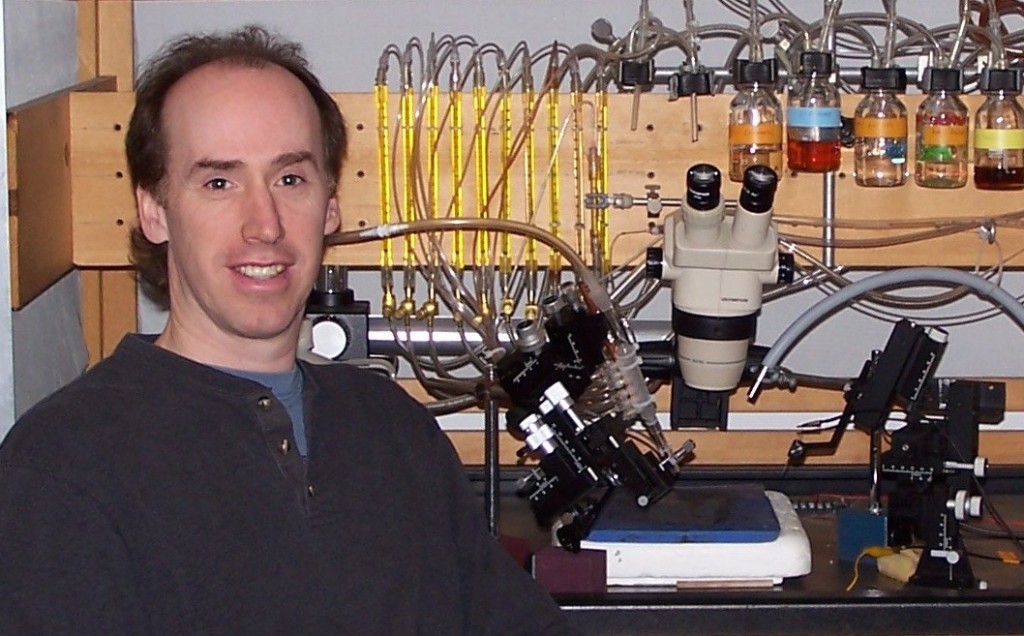Alumnus Discovers Unknown Passion at Allegheny
It was 2007 – the first semester of Carlos Blandino-Lopez’s freshman year.
Thinking that he someday wanted to be a doctor, he walked into the David V. Wise Sport & Fitness Center preparing to register only for neuroscience classes.
At that time, the course registration process “was like a school fair,” Blandino-Lopez says, with students walking from table to table learning about the different classes available.
That’s when Tom Erdos, a former dance and movement studies faculty member, motioned Blandino-Lopez over to his table. He said he needed more men in his ballroom class.
“I thought sure, why not?” Blandino-Lopez says as he jotted down his name on the Introduction to Ballroom roster.
Unbeknownst to him, the moment changed his life.
“We learned the six major dances in that course, and I found out that I had a knack for dance,” says Blandino-Lopez, who originally is from Anchorage, Alaska, but now lives in Pittsburgh. “I was hooked.”
A (Dance) Step in the Right Direction
With his new passion ignited, Blandino-Lopez filled his schedule with dance classes each semester at Allegheny. During his collegiate career, he also completed independent studies focusing on dance, worked as a teacher’s assistant for ballroom classes, and choreographed performances for the College and community.
In addition, Blandino-Lopez worked with other classmates to produce a surprise performance for Professor Erdos. “The entire production was student-run. We worked on it for a full semester,” he says. “We performed 16 pieces with all different types of dance. Professor Erdos had no idea.”
Blandino-Lopez’s love for dance continued to grow – and he began thinking about how he could continue his passion after graduation. That’s when a coach from Arthur Murray Dance Centers in Miami visited his class.
“She took me aside and told me I could do this as a career,” says Blandino-Lopez, who also was involved in the Bonner program, the Association of Black Collegians/Association for the Advancement of Black Culture, Union Latina, and Orchesis at Allegheny. “That really piqued my interest.”
The following year, the Allegheny senior found himself traveling to Pittsburgh for a job interview with Arthur Murray Dance Centers. Shortly after, he landed a position there as a dance instructor – a job he still enjoys today.
“As a teacher, I love seeing how confidence builds in people,” he says. “Even in college, there were people in my classes who were awkward and really didn’t interact with others. Then they would dance and develop confidence. My passion for dance is fueled by the excitement of seeing people learn.”
Story through Dance
One of the best parts about teaching, Blandino-Lopez says, is being a part of people’s stories. He cites one of his students, an 88-year-old man named Howard, as an example.
“Howard has Alzheimer’s, and the studio is the only place where he gets a sense of normalcy,” he says. “He’s deteriorating in every other aspect of his life, but on some level, he’s progressing here.”
Another student, 74-year-old Judy, was a teacher at Arthur Murray when she was 18.
“It’s so great to talk with her about how things have changed,” he says. “She met her husband through dancing, and now she does it for her own self-confidence and exercise. She told me this is her reason for getting dressed up and leaving the house.
“Over the years, I’ve learned that very few people come here to learn to dance,” he continues. “They come here for something deeper.”
Dance also has affected Blandino-Lopez’s personal life. He met his wife, Elizabeth, while salsa dancing.
“I asked her to dance and she said no,” he says. “Luckily I had the confidence to eventually get her to say yes.”
Although dance was a major focus for Blandino-Lopez at Allegheny – even becoming his minor during his senior year – he continued studying neuroscience, graduating in 2011 with a double major in neuroscience and psychology. He believes this foundation is still applicable to his current profession.
“I’ve always been fascinated with the brain. The reason I came to Allegheny was because I knew it was one of the best in the country for neuroscience,” he says. “It’s really helped me now because I understand the physiological process of how learning works. As a teacher, that foundation helps me to have more patience and understanding with my students.”
Eventually, Blandino-Lopez would like to revisit the connections among neuroscience, psychology, and ballroom dance.
“My senior comp was on ballroom dance and psychological androgyny. I’d like to do more research around ballroom dancing in general,” he says. “A study I read said dancing frequently can reduce your risk for dementia by 76 percent. I’d like to dig into that someday.”







